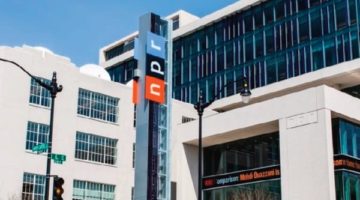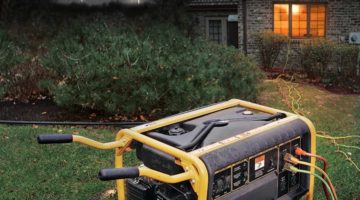MIAMI — Just before 11th Circuit Court Judge Rosa C. Figarola signed Marshalina Williams’ adoption papers Friday morning, the girl’s mom-to-be, Virginia Robinson, showed the judge a note that the 6-year-old had given her.
“Dear Momy,” the note read, “I love that you are my mom cause u show me a lot of care.”
Marshalina, or Marshy, as she’s called, signed the note just below a sketch she drew of Robinson, her foster-care mother for the past four years.
Thankful that this day finally arrived, Robinson’s eyes filled with tears as Figarola signed the adoption papers with a warm grin. Robinson hugged her new daughter, who was clutching a teddy bear, and exclaimed, “You’re mine! You’re mine!”
Several social workers and officials with the Florida Department of Children and Families (DCF) who watched Marshy’s adoption proceeding wiped away tears as the new mother and daughter hugged.
Marshy was one of 66 children formally adopted at a National Adoption Day ceremony that took place at the Miami Children’s Museum, at 980 Macarthur Causeway, Miami, on Friday.
“I loved her from the first time she came to my house,” said Robinson, who first started to care for Marshy as a foster child at age 2. Back then, Robinson said, she would rock the toddler in her arms before bed, certain of one thing.
“I knew she was going to be mine,” Robinson told South Florida Times. “I kept telling the case manager that she was going to be my child.”
Robinson, 59, lives in Miami Gardens with her daughters Ebony Robinson, 25, and Mahogany Robinson, 29. Robinson said she has been a foster parent since 2000, when she first heard about Miami-based CHARLEE Homes for Children on a TV talk show.
CHARLEE, which stands for Children Have All Rights: Legal, Educational and Emotional, is a private, not-for-profit agency that cares for Miami-Dade County children and teenagers who have been placed in foster care due to abuse, abandonment or neglect.
Area social workers and DCF officials say there’s a growing need for black parents like Robinson in the foster care system. While the number of black adoptions fluctuates annually, social workers and DCF officials say the number of black foster parents needs to be higher to match the number of black foster care children in South Florida.
Diversity
“It is important that our foster and adoptive families reflect the diversity of our community,” said Keith Ward, vice-chairman of the board of trustees of Our Kids of Miami-Dade and Monroe.
In Miami-Dade County, the number of black adoptions has dropped 42.4 percent from 2008 to 2012, according to DCF statistics. Figures show that Broward County’s black adoption rates dropped 20.3 percent during that same time
period.
But Palm Beach saw an 11.1 percent increase during the period — from 72 adoptions between 2008 and 2009 to 80 adoptions between 2011 and 2012.
Ronald A. Mumford, an adoptions recruiter with CHARLEE Homes for Children of Miami-Dade County, said South Florida is in desperate need for “quality foster parents” who can teach black foster children about their heritage and cultural values.
Future
“These are our kids and they are our future,” Mumford told the South Florida Times. “These kids are the victims. They’ve done nothing wrong to be put into the system. They want the same thing any other kid wants: they want to be loved and given the same opportunities as any other child.”
In his role, Mumford tries to “dispel a lot of the myths that are out there,” he said. “A lot of people still think you have to be married or own your own home or live in a certain type of neighborhood to be a foster parent or adopt a child but that’s not true. You just need the room in your heart and space in your home.”
Robinson said foster children need “the structure of love and family.” For some people, the money they receive to house and care for a foster child is the primary incentive but, Robinson said, “if you’re in it for money, that’s the wrong reason. Do it so their lives are better.”
Robinson grew up in a large family, which, she said, inspired her to become a foster parent. In 12 years, she and her two biological daughters have shared their home with at least 20 foster children and teenagers, including Marshy.
Ebony Robinson said it was usually hard for her and her sister to say goodbye to their temporary “siblings” when it was time for them to be reunited with their own families or be adopted by a new family. But “it was a very nice experience getting to know and love all of them,” she said. “We would cry when it was time for them to go but we still keep in touch.”
Nickname
The sisters both said they knew that Marshy was different — that she was really special — and gave her a nickname to show it. They call her “the boo.”
And Marshy loves it. “She walks around and tells people ‘I’m the boo,’” their mother said, amused at Marshy’s sense of ownership. Robinson said she and her daughters have worked hard to help Marshy get top grades at Scott Lake Elementary and develop her interests in martial arts and music.
As a foster parent and now as an adoptive parent, “my greatest reward is making a child feel like they belong,” Robinson said. “That’s my blessing.”












No Comment